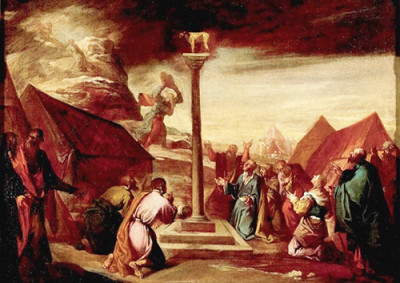
Growing up day by day, year by year, I have come to realize that the opportunities Hashem sends our way often come from the most unexpected of places. Take for example, a 20-year-old talmid in yeshivah who is returning from Shanah Bet in Israel. Such a boy would be excited to share Torah and Jewish thought with anyone who will listen. The bachur then starts speaking about these topics with zeal to a fellow congregant during kiddush in shul on Shabbat. This friendship lasted for many months until the two thinkers eventually parted ways. The talmid married and moved to Teaneck. The congregant became an editor of a growing newspaper tackling Jewish issues, A-Z. As you have surely surmised, I am speaking of my own history with Shalom Meirov, and how we used to discuss many issues of Jewish thought and outlook. A few weeks ago, Shalom reached out suggesting my involvement in this publication. This is an opportunity I am very grateful for, as I enjoy writing and have passionately studied Judaism in a way that is unique. So, to the Almighty Hashem, I say, “Thank you.” And to Shalom, I offer a humble hope that what you see in the thoughts Hashem graces me with will shine through on paper and offer something of value to the readers of BJL, and hopefully, the Jewish community in general.
Every Jew in their life has probably, when coming across the story of the golden calf, asked themselves, “How on earth is it possible for the Jews of that generation to have created an idol for worship despite all that happened?! If Hashem performed half of those miracles for me, I would be in the beit midrash and pray with such kavanah the angels would be put to shame!” Ok, maybe I am embellishing slightly, but you get the point. After we ask this question to our parents, teachers, rebbeim, and other Judaic resources at the time, we were most likely introduced to the famous gemorah in Sanhedrin speaking of how the inclination for idol worship was “prayed away” (I sourced this especially for this writing.) While we no longer have this inclination, had we been alive then, we can be certain that we would have partaken in that desire.
However, if one reads Tanach, the entirety of which is a lamentation of idolatry, this claim is almost unbelievable. Idolatry was the disease to which the Torah’s lifestyle was the antidote. Every single abomination, immorality, entropic force, and evil society was built on idolatry. Central to the Jewish mission is fighting against idolatry, singled out by our Patriarch Avraham Avinu who was credited with smashing the idols of his father’s home (Midrash). The Jews are commanded to eradicate anyone who so much as fancies the idea of coercing others into a life of idol worship! Settling in the land of Israel was almost symbiotic with the notion of removing all idol worship from the sacred land. Ultimately, the judges and kings of Israel were heavily rebuked for not completely annihilating idolatry. The prophets’ writings are replete with mourning the Jewish addiction toward such worship. Even the aforementioned Talmud in Sanhedrin comments, “Idolatry is what destroyed the Temple, burned the Sanctuary, murdered the righteous ones, and caused the Jewish people to be exiled from their land.” All these words were used to say that it took three days of intense fasting and praying to formulate a final goodbye to this aspect of life? This cannot be literal; it must be real in a sense other than literal.
In a form of reality, the desire for idolatry as we knew it then is literally gone. But, in a subtler sense, not only is there a yearning for idolatry nowadays, it is also more dangerous than its appeal of the formative Jewish nation. In my first series of articles, I will focus on the roots of idolatry, what it represented then, how its spirit lives on through modern day examples, and finally, with Hashem’s help, how we can be aware of such worship and live our Jewish mission of fighting against such a transgression even today. After all, battling against idolatry is the core of Judaism as a whole.
Dovidchai Abramchayev works as an accountant but lives as a philosopher based in Teaneck, NJ. Dovidchai graduated Summa Cum Laude from Touro University with a BS in accounting. Dovidchai studied Jewish philosophy in Israel at Aish HaTorah. Currently, he works in the NFP audit industry and studies philosophy in his spare time.
Smashing Idols In The Twenty-First Century
Typography
- Smaller Small Medium Big Bigger
- Default Helvetica Segoe Georgia Times
- Reading Mode




